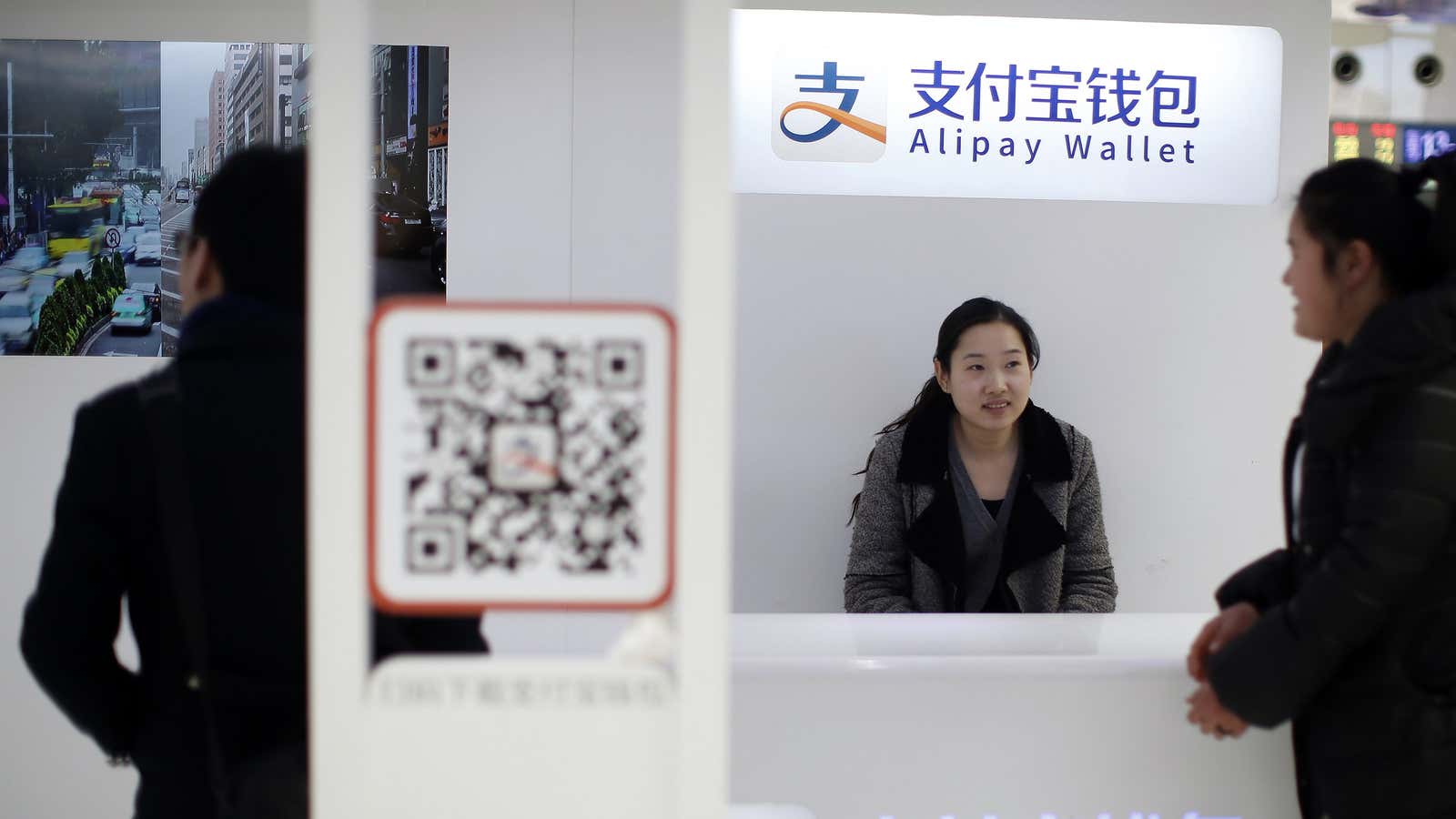The Chinese government has published a “whitepaper” (link in Chinese) that sets out key milestones for the development of blockchain technology in the country, in the strongest signal yet that it’s encouraging the growth of the technology there. The move will give further impetus to firms pushing for blockchain applications in sectors ranging from payments to smart contracts on the mainland, which is already a central force for bitcoin mining (paywall).
The 70-page report (pdf, link in Chinese) was published Oct. 18 by the software services division of China’s Ministry of Industry and Information Technology, and was written by a working group of financial firms and nonprofits including mobile payments giant Ant Financial (an Alibaba affiliate) and Ping An Insurance.
Parts of the report retreaded ground that has been covered by everyone from the World Economic Forum to the British government, providing an overview of the technology’s history and potential applications. Use-cases it highlighted included everything from financial services to business management to education.
But, importantly, the report signaled Beijing’s interest in setting up international standards for blockchain technology. ”The international standardization of blockchain is still in the early stage of research,” the report reads. “Whether China can play an important role” during the process largely depends on a “quick response and reasonable planning.” The report has set an aggressive deadline of April 2017 for pilots using blockchain standards developed by the group.
The report suggests Chinese firms and organizations should play a more active role in setting the agenda globally. They should “win more right to speak” when engaging with the various international groups and bodies coalescing around the technology in order to “lead or substantively participate” in the process of technical standards setting. The goal is to promote to the world an “advanced” standards system they’ve had a major role in establishing. Those standards involve terminology, development, deployment, and security.
“The white paper shows government and industry leaders in China are getting serious about blockchain, which will help the blockchain industry,” said Star Xu, founder of Chinese bitcoin exchange OKCoin, which is among the largest exchanges in the world by volume traded.
While Chinese exchanges and miners dominate the bitcoin economy, their influence on the cryptocurrency’s core protocol has been relatively limited. The bitcoin core, the code that governs how the cryptocurrency works, is open-source, but the programmers with the largest presences on how changes are made to it remain concentrated in the United States and Europe.
There has also been relatively little exploration of blockchain uses beyond bitcoin, while big banks around the world, including in Asian countries like Singapore, have stepped up their efforts to unlock cost-savings and increase transparency with the technology. The report is a “reminder to the [Chinese] industry” to focus on the technology at the far-reaching protocol level instead of just at the application layer, said Zhu Jiawei, chief operating officer at Huobi, a leading bitcoin exchange.
While the report is bullish on blockchain technology, it pointedly laid out no plans for bitcoin regulations or development (despite mentioning blockchain is the technology behind bitcoin). Other governments have also attempted to use the technology without associating it with its most notorious implementation. Still, it’s the strongest signal yet that China’s miners and exchanges—and its tech giants, and big banks—will have a stronger hand in shaping the technology’s growth, with Beijing’s blessing.
